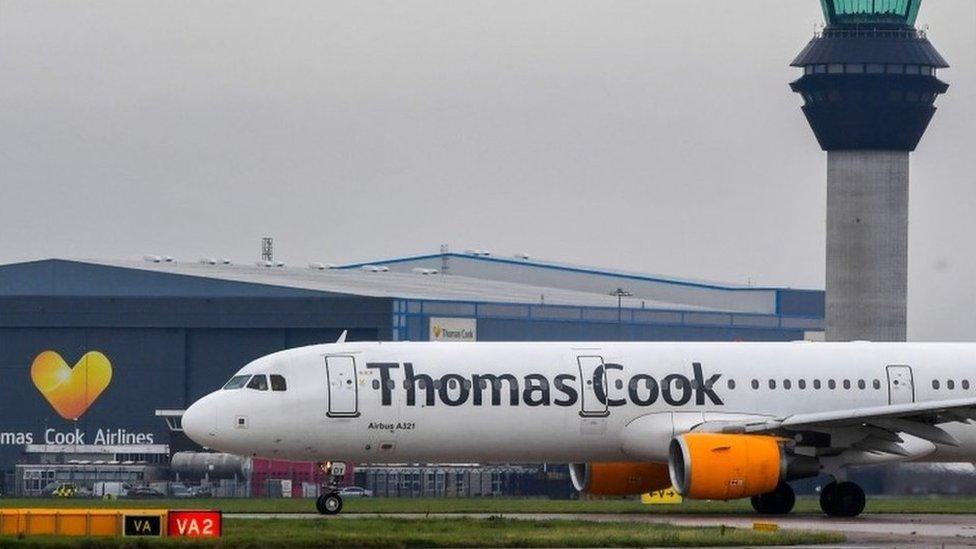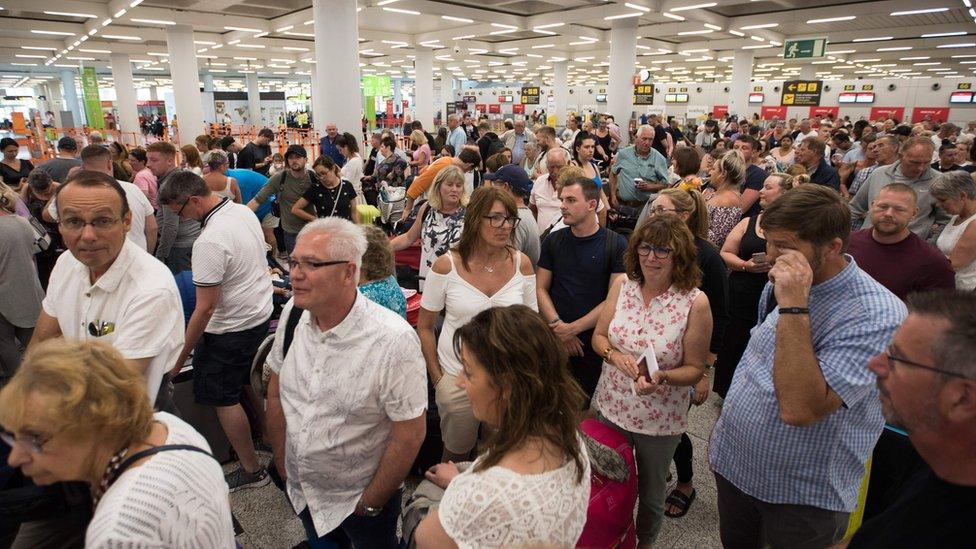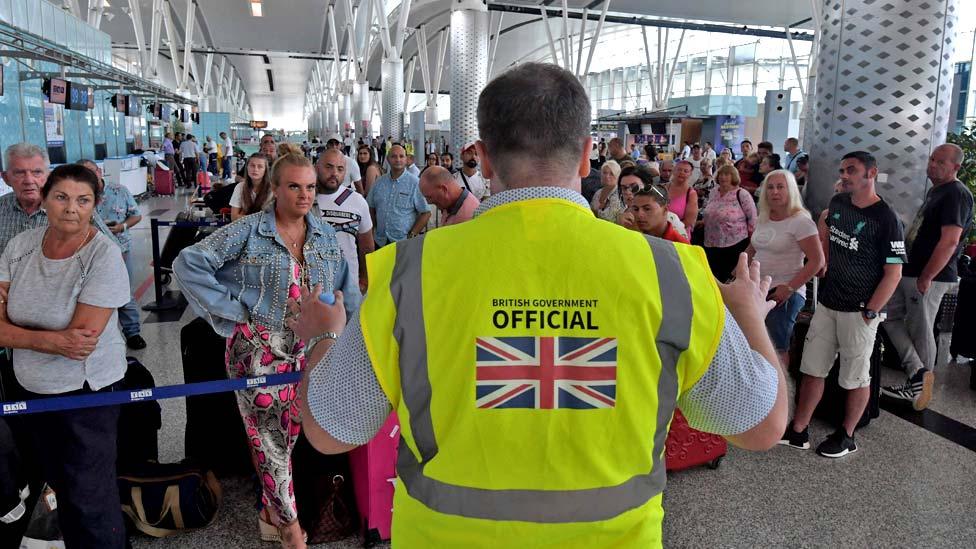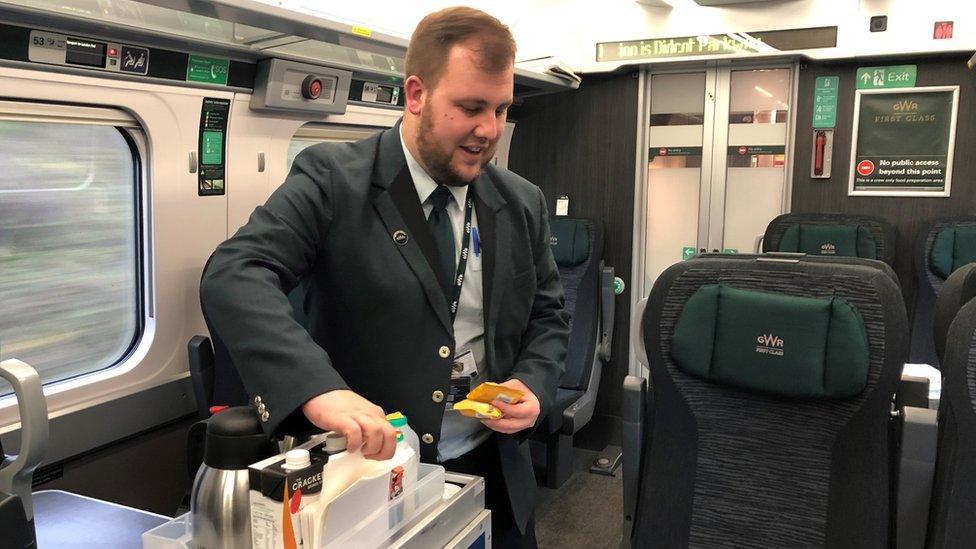Thomas Cook: Taxpayers face £156m bill for company's collapse
- Published

Taxpayers face a bill of at least £156m for the response to the collapse of Thomas Cook, according to a report by the government's spending watchdog.
The travel company's collapse last September left 9,000 staff out of work and 150,000 holidaymakers stranded.
The National Audit Office (NAO) said the government had agreed to pay £83m towards the cost of getting customers back home, as well as £58m in redundancy and related payments.
But the final cost is not yet known.
Other costs include at least £15m for liquidating the business.
When the world's oldest travel company collapsed, the Department for Transport (DfT) instructed the Civil Aviation Authority (CAA) to repatriate all 150,000 Thomas Cook customers who were stranded overseas.
This included roughly 83,000 who had not booked a trip with Atol protection, which meant they were not automatically entitled to be flown home free of charge.
The DfT is reimbursing the cost of repatriating those passengers.
However, the NAO said "the final cost may not be known for some time", partly due to invoices for repatriation costs still being received.
Labour MP Meg Hillier, who chairs the Commons' Public Accounts Committee said "lessons need to be learnt and future risks understood".
"Government looks set to foot the bill, with industry off the hook," she said.
"The resources to cover other airlines going bust is now very limited. New regulations are urgently required."

The collapse led to the biggest-ever peacetime repatriation of 150,000 stranded holidaymakers
A DfT spokesperson said: "Due to the unprecedented scale of the operation, other airlines did not have enough capacity to repatriate those abroad.
"Without this effort, stranded passengers couldn't be guaranteed a safe journey home, causing stress and disruption to families, which would have had a knock-on effect on the wider economy with so many employees abroad."
A total of 746 flights from 54 airports were involved in the repatriation effort, known as Operation Matterhorn.
The report also warned that limited resources would be left in the fund which provides assistance to customers whose holidays are protected by the Atol scheme.
The CAA told the NAO the £481m of repatriation and refund costs related to the Thomas Cook collapse would deplete the majority of the fund's resources.
The NAO said the government had agreed to back up that fund, if it cannot meet the costs should any other Atol-licensed company go bust.
This could mean further costs to taxpayers if another large travel company collapses in the near future, the report added.
In December last year the government confirmed plans for new airline insolvency legislation, which would allow carriers to keep their planes flying long enough to repatriate passengers.
- Published23 September 2019

- Published23 September 2019

- Published11 December 2019

- Published7 February 2020
